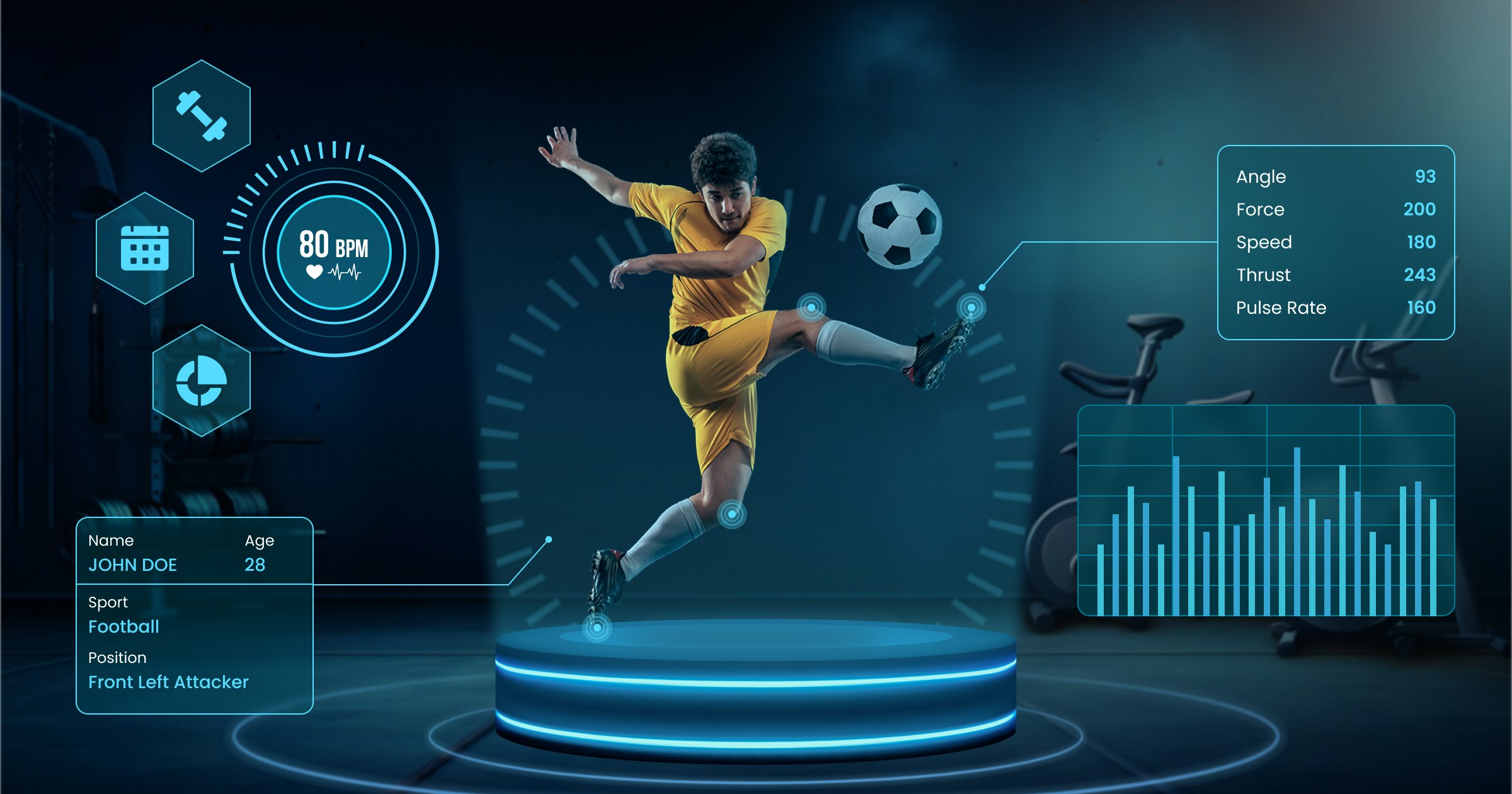How Real-Time AI Analytics Are Transforming Live Sports Broadcasting
In today’s digital age, the landscape of live sports broadcasting is undergoing a revolutionary transformation, thanks to the advent of real-time AI analytics. This technology is enhancing the way games are played, watched, and understood, providing both fans and professionals with deeper insights and a more engaging viewing experience. This article delves into how AI-driven analytics are reshaping live sports broadcasting, elevating it to new heights of interactivity and excitement.
The Integration of Real-Time AI in Sports Broadcasting
Real-time AI analytics are becoming a cornerstone in the world of sports broadcasting. By analyzing data points at incredible speeds during live events, AI provides instant insights that were previously unattainable. This includes advanced metrics such as player performance analysis, game trend predictions, and enhanced visualizations of complex plays. These capabilities allow broadcasters to deliver a more enriched and informative viewing experience that appeals to both casual fans and avid sports analysts.
Enhancing Viewer Engagement with AI
AI technologies are instrumental in crafting a customized viewing experience that caters to individual preferences. By analyzing viewer behavior and preferences, AI can tailor the broadcast in real-time, highlighting relevant player stats, providing personalized commentary, and even adjusting camera angles to focus on preferred players or actions. This level of personalization not only enhances viewer engagement but also makes the sports viewing experience more interactive and enjoyable.
AI and Data Visualization in Sports
One of the most visible impacts of AI in sports broadcasting is the enhancement of data visualization techniques. AI-driven graphics and augmented reality (AR) are used to overlay live feeds with real-time statistics, heat maps, and probability outcomes. These visual aids help viewers understand the intricacies of the game and appreciate the strategies behind player movements and team decisions. For instance, during a football game, AI can illustrate the changing formations and potential plays, giving viewers insight into the coach’s tactics and player decisions as they unfold.
Predictive Analytics: Forecasting Game Dynamics
AI’s ability to process vast datasets quickly and accurately leads to advanced predictive analytics in sports broadcasting. AI models can forecast potential game outcomes, player performance, and even injury risks based on current game dynamics and historical data. This not only adds a layer of intrigue and speculation for the audience but also assists coaches and players in strategizing and making informed decisions during the game.
AI Chatbot Development Services in Sports
Beyond analytics, AI chatbot development services are playing a crucial role in transforming sports broadcasting by enhancing viewer interaction. These chatbots serve as virtual assistants, providing real-time answers to viewer questions, offering statistics, and even sharing player bios and background stories during the broadcast. This interaction enriches the viewer’s experience, making the live sports event more engaging and informative.

Generative AI in Healthcare and Athlete Performance
The implementation of generative AI in healthcare offers a parallel in understanding its impact on sports broadcasting. Just as generative AI is used to simulate patient responses to treatments and predict health outcomes, in sports broadcasting, similar AI technology can be used to simulate game scenarios and player responses to various conditions. This not only helps in planning game strategies but also in reducing athlete injuries and enhancing performance through better training programs and health management.
Personalized Learning for Sports Professionals
AI’s impact extends into the training and development of sports professionals through personalized learning systems. These AI-powered platforms offer tailored educational content that adapts to the learning styles and needs of athletes, coaches, and even sports journalists. By providing customized modules on game tactics, performance analytics, and even media handling, AI facilitates a comprehensive learning environment that enhances professional growth and adaptability in the fast-paced world of sports.
Navigating Challenges and Ethical Considerations
While AI analytics offer numerous benefits, they also bring challenges such as data privacy, security, and the potential for bias in algorithmic decisions. Addressing these issues requires robust data governance and ethical AI practices to ensure that the technology enhances the sports experience without compromising fairness or privacy.
AI-Enhanced Replay Technology in Sports Broadcasting
One of the standout features AI brings to sports broadcasting is enhanced replay technology. AI systems can automatically tag key moments in a game, from goals and fouls to spectacular saves, and generate instant replays from multiple angles. This not only enriches the viewing experience but also aids officials and coaching staff in decision-making. Furthermore, AI can analyze these plays in real-time to provide deeper insights, such as player speeds, the accuracy of passes, and strategic formations, all of which contribute to a richer narrative for audiences and professionals alike.
Real-Time Performance Analytics and Fan Engagement
AI’s capability to deliver real-time analytics directly to fans during live broadcasts is transforming fan engagement in sports. By offering detailed player analytics and performance data through on-screen graphics or mobile apps, fans can enjoy a more immersive experience that goes beyond the traditional viewing. This can include everything from heart rate monitoring to stamina levels, giving fans insights typically reserved for professional analysts. This level of interaction not only increases fan involvement but also brings a new dimension to watching live sports, making it more interactive and data-driven.
AI Chatbot Development Services for Interactive Sports Broadcasting
Expanding on the use of AI chatbots, these digital assistants are becoming integral to sports broadcasting networks. They enhance the interactive aspect of watching live sports by providing real-time, conversational user experiences. Fans can ask questions about game rules, player stats, or historical performance and receive instant, accurate answers. AI chatbots can also offer personalized content suggestions based on viewer preferences, such as highlighting upcoming games of favorite teams or summarizing missed matches, thereby increasing viewer loyalty and satisfaction.
Ethical AI Use in Live Sports Broadcasting
As the application of AI in sports broadcasting grows, so does the need to address ethical concerns. Ensuring the integrity of game data, protecting the privacy of players, and maintaining unbiased AI algorithms are paramount. Broadcasters must establish clear guidelines and practices for AI use to avoid potential biases in player selection, performance evaluations, and game analytics. Transparency in how AI tools are used and data is handled reassures fans and stakeholders about the fairness and reliability of the technology.

Conclusion
Real-time AI analytics are indisputably transforming live sports broadcasting, making it more dynamic, interactive, and personalized. As this technology continues to evolve, its potential to reshape the sports industry is limitless. From enhancing how we view and understand games to improving athlete performance and viewer engagement, AI is truly a game-changer in the world of sports broadcasting.




